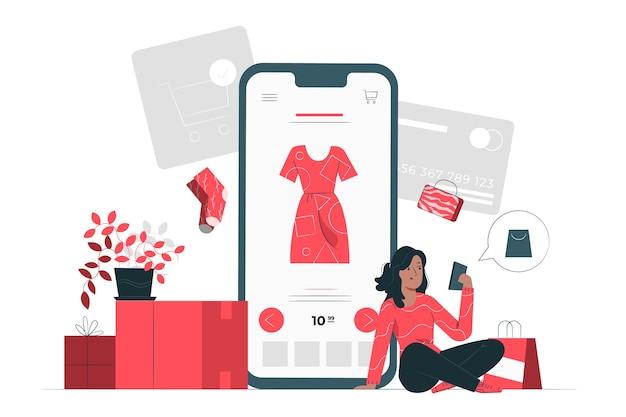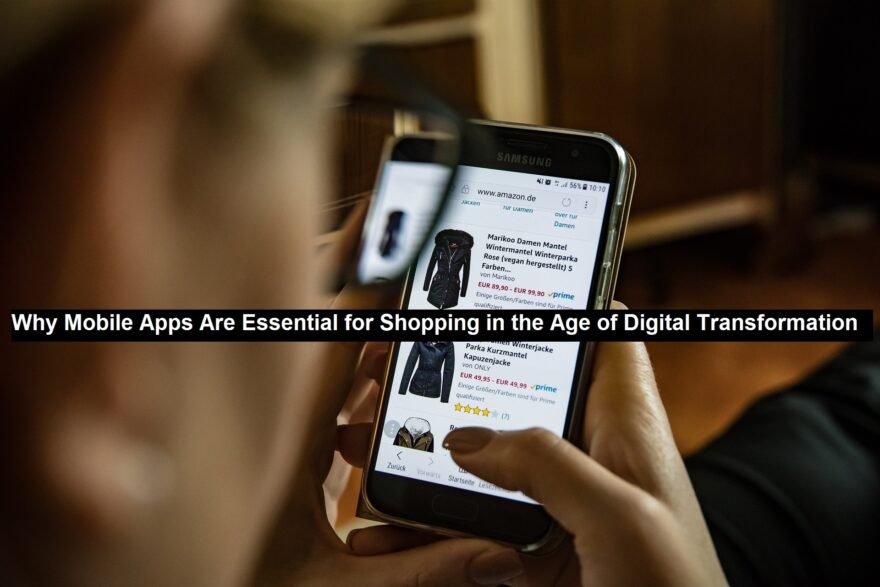Mobile apps in the present generation are considered as vital complements in the consumer market as well as in the retail market. Given that digital transformation is happening at a fast pace throughout various industries, shopping has become easier and more customized by extending mobile applications. By superimposing user experience, site navigation, checkout, and countless other features, mobile apps have permeated and revolutionized retail. This article aims at discussing the problem why mobile applications are essential for shopping emphasizing the benefits for consumers and entrepreneurs.
The Rise of Mobile Commerce

- Mobile Commerce: A Growing Trend
M-commerce which means mobile commerce has received a lot of acceptance in the recent past due to the increase in number of smart phones around the world. Mobile consumers are using their portable devices for searching products, comparing them and finally making a purchase. Scholars have found out that mobile commerce is likely to account for a large percentage of total e-commerce sales through convenience and shift of behavior.
- How Mobile Devices Are Changing Shopping Habits
Mobile apps allow consumers to shop anywhere, anytime and they can track the orders placed, they get special offer notifications etc. Such flexibility is in harmony with our society needs of time and simplicity, making mobile apps as a part of essential shopping trends.
Read: Do Bed Bath & Beyond Coupons Expire?
Benefits of Mobile Apps for Shoppers
1. Convenience and Accessibility
A mobile app is convenient for the consumer since it eliminates the tags of store location and the time of operation. One of the ways that we can make the customer experience all the more better, is this ease of access.
2. Enhanced Personalization
With the help of analysis of user behaviour, applications can predict and suggest promotions, discounts or something else that may be interesting to the user. But the thing is, this kind of approach not only enhances the customer satisfaction, therefore promoting more sales, when providing relevant content.
3. Faster and Secure Transactions
Mobile applications have quick check-out options where clients can pay via secure methods such as mobile wallets. Applications include reducing the number of steps that need to be completed for purchase thus decreasing instance of abandonment of purchases.
4. Real-Time Notifications
Through having a mobile application, customers can easily receive push notifications for unique sales, sales promotions and when certain products are back in stock. Such pre-emptive communication also fosters better relations between retail business managers and their clients.
Benefits of Mobile Apps for Retailers
1. Improved Customer Retention and Engagement
First of all, using mobile applications, retailers are able to receiving loyalty and targeted customers’ attention through promotions and bonuses. These tools are widely used in managing customer relations for the purpose of always tempting the customer to come back for more.
2. Data Collection and Analysis
Customers can have access to retailer information including browsing history, purchase history, and choice history from their smart mobile apps. This data enables organisations to fine-tune their approaches the better to meet clients’ needs with better content and products.
3. Increased Brand Loyalty
Some of the gratuities offered in mobile apps for instance the loyalty programs, special offers, and customer service are hall marks of building brand loyalty. Consumers will appreciate their efforts, and it results in customer loyalty, which is vital to a brand’s revenue.
4. Competitive Advantage
In the age of digital transformation, we have noticed that the retailer who has a dedicated mobile app has certain advantages over the competitors who only have a web store or physical stores. A committed application raises the profile of the brand and allows the business to reach customers in a modern way.
Key Features that Make Mobile Shopping Apps Essential
1. User-Friendly Interface
User Interface or UI enables users to find what is within an applications as quickly as possible through easy to follow layouts. Purchasing activities, which many of the mobile apps avail, are usually free of unnecessary hurdles, hence the apps’ simplicity.
2. Secure Payment Options
An important consideration for mobile shopping is the security of a person’s information. When purchasing through mobile applications, consumers trust when employing credit cards, PayPal and digital wallet as the modes of payment.
3. Personalized Recommendations
The programs enable mobile apps to successfully suggest related products based on the customer’s demands to increase satisfaction rates and to boost sales.
4. In-App Chat Support
On-demand help to customers through ‘in-app help chat’ or chatbots answers customer concerns without any delay, helping customers overcome any issues they might face in making a purchase decision and build customer confidence in the brand.
Mobile Apps vs. Mobile Websites
- User Experience and Engagement
Though mobile websites are, accessed through a browser on a mobile device, they do not have as much functionality or customization as apps. Mobile apps are more engaging due to features like offline mode of operation, customized notification and quick loading which comes along with the mobile apps.
- Performance and Speed
Mobile applications are very quick to load which makes them efficient in their execution as opposed to mobile websites. This improved performance is important in customer loyalty since long loading time is a common cause of cart abandonment.
- Personalization Capabilities
Mobile apps gather information from the user so as to provide service that is unique, this may barely be done by a mobile website. This extra layer of bespoke delivery is a great weapon in the fight to retain the customer.
Role of AI and Personalization in Mobile Shopping
- AI-Driven Personalization
AI is used to make customer behaviour analysis and offer personal shopping experiences. By using machine learning, mobile Apps can show product recommendations which will be much more appropriate than before and this is likely to increase the sales of these products.
- Chatbots and Virtual Assistants
The majority of leading mobile applications use artificial intelligence chatbots to help people during the purchase decision and after. These virtual assistants are always available offering instant assistance and enhancing the general experience of the customers.
- Predictive Analytics
Mobile apps leverage predictive analytics to learn the needs of customers of its services and recommend them beforehand. Through past buying behavior, and the websites they frequent, the retail stores can make recommendations of what may interest the customer making the shopping experience more enjoyable.
Challenges and Considerations for Retailers
1. Development and Maintenance Costs
Maintaining an application and keeping up with its updates, security and functionality is a costly process for developers. That is why retailers should consider all the costs that an app implies and decide whether they have enough resources to allocate to such an investment.
2. Data Privacy and Security
Due to the recent emerging issues to data privacy, retailers have to avoid exposing their customer information to third parties. To build the customer’s trust it is crucial to ensure that the highest standards of encryption are followed and that data protection acts are adhered to.
3. Ensuring User Engagement
Indeed, a mobile app has a number of benefits, but one of the most significant difficulties is to keep users interested. Marketing and fostering the interest of consumers is important for all retailers and to achieve this they should post constantly, offer bonuses and create applications with games.
Future of Mobile Shopping in the Digital Era
In today’s evolving retailing environment that is being pressed by the resultant effect of digital disruption, it is expected that mobile app will grow to be more influential and useful. Mobile shopping may evolve in the future with the help of AI, augmented reality, and blockchain technology and may provide improved function of interaction, security, and personalization.
We can expect in the future, features like virtual try-ons, advanced voice search and deep personalized experience integrated with AI. Mobile apps are expected to persist in delivering the gap between online and offline retailing and present customers with more engaging, easy, as well as personalized buy experiences
Conclusion
In the era of digital transformation, mobile apps have become indispensable, offering unique advantages for both shoppers and retailers. Through increased convenience, personalization, and improved customer retention, mobile apps are reshaping the retail experience. As technology advances, mobile app development will play a pivotal role in the future of retail, helping businesses stay competitive and providing customers with a seamless shopping journey. For retailers, investing in mobile app development is not just a trend—it’s a strategic move toward a more connected and customer-centric future.

